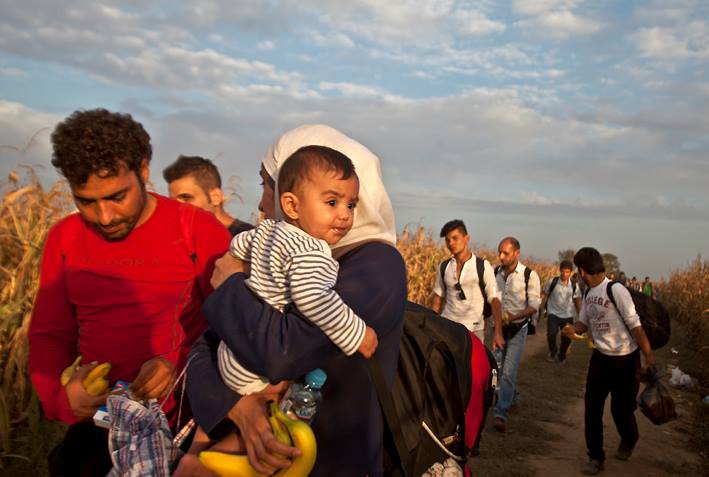Author: ISM Media
-
Another segment of the journey
22nd September | Caoimhe Butterly | Serbian and Croatian border A few kilometres away from the small Serbian border town of Sid, a dirt track through corn and turnip fields serves as passage to tens of thousands of women, men and children seeking refuge and lives of more possibility. The unofficial border crossing between Serbia and Croatia…
-
Palestinian teen shot in Hebron by Israeli forces dies from injuries
22nd September 2015 | Ma’an News Agency | Hebron, occupied Palestine A Palestinian teenager shot by Israeli forces at a checkpoint in Hebron died from her injuries on Tuesday, Israeli medical sources said. The teenager, identified as 18-year-old Hadeel al-Hashlamon, was shot three times by Israeli soldiers after allegedly attempting to carry out a stabbing…
-
Israeli soldiers attempt to falsely arrest internationals
22nd September 2015 | International Solidarity Movement, Al-Khalil team | Hebron, occupied Palestine Last night Israeli soldiers threatened to arrest internationals, who were present during the arrest of 3 Palestinian boys in Tel Rumeida, al-Khalil (Hebron). After the 3 boys were brought to the military base, internationals went back into the house in Tel Rumeida.…



